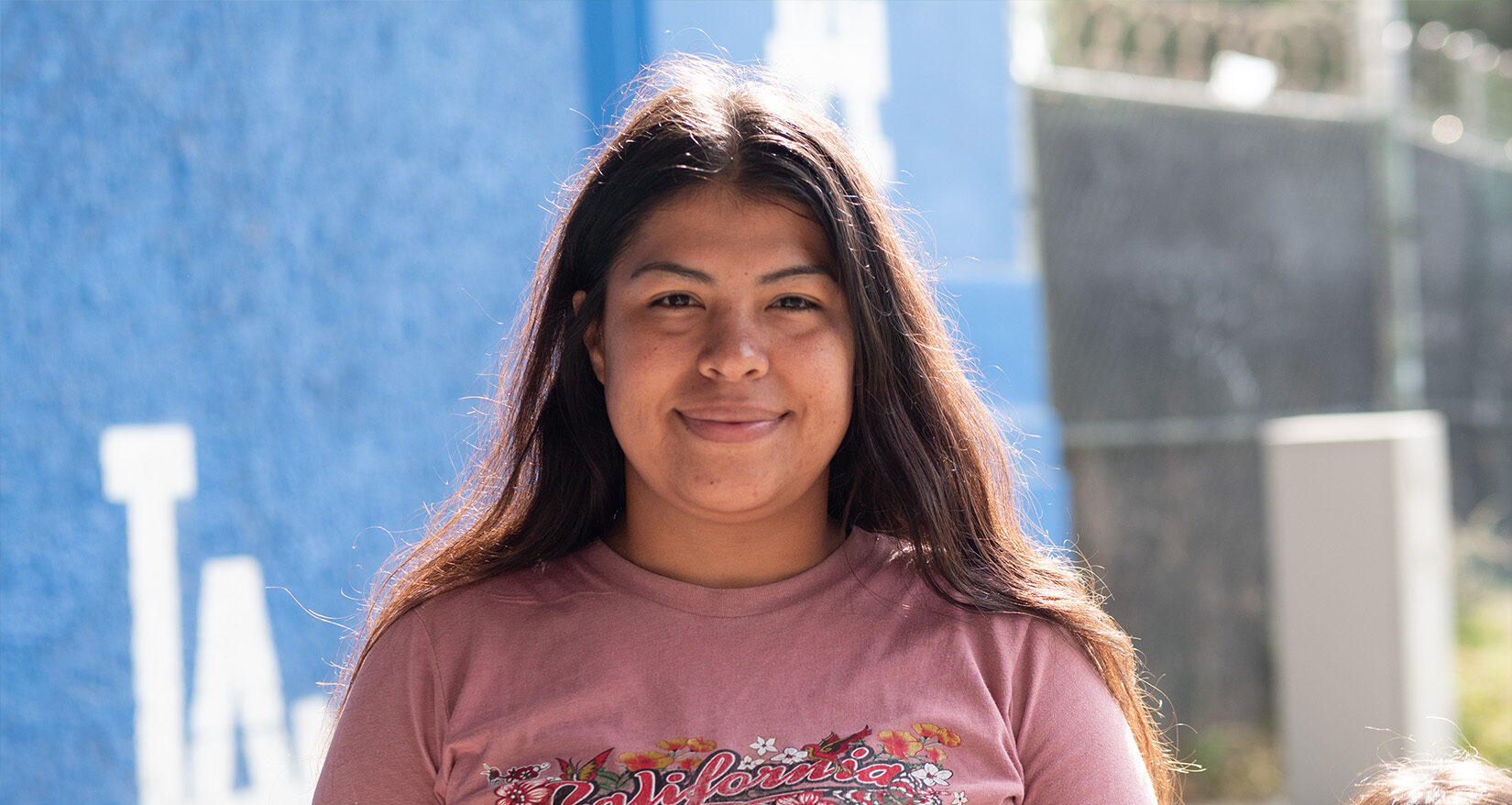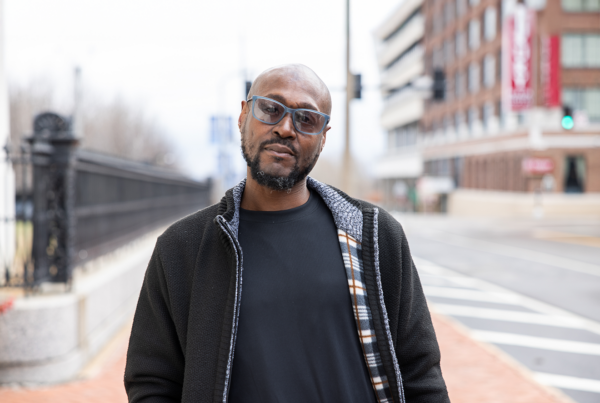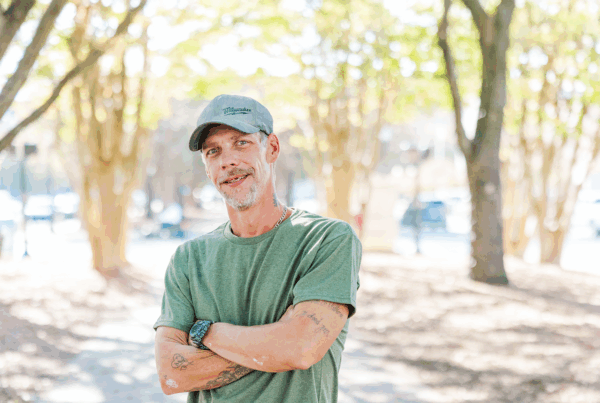At first glance, the room at the homeless shelter in Los Angeles looks mundane. It’s spacious enough to fit three beds and some personal belongings. Not much else. But for Sandra Molina and her three young children, that room is sacred. It’s where, for the first time in years, the 39-year-old single mother and her kids feel safe. To them, that room is home.
Sandra has been homeless since she was released from jail a little over six months ago. She’s been living at the homeless shelter for a majority of that time. The shelter provides three meals per day and clothes to occupants. Bathrooms and showers are located in shared areas and curfew is enforced at 11:00 p.m. sharp. Resources are available on site to help link people to permanent housing, employment, personal development classes and legal advice.
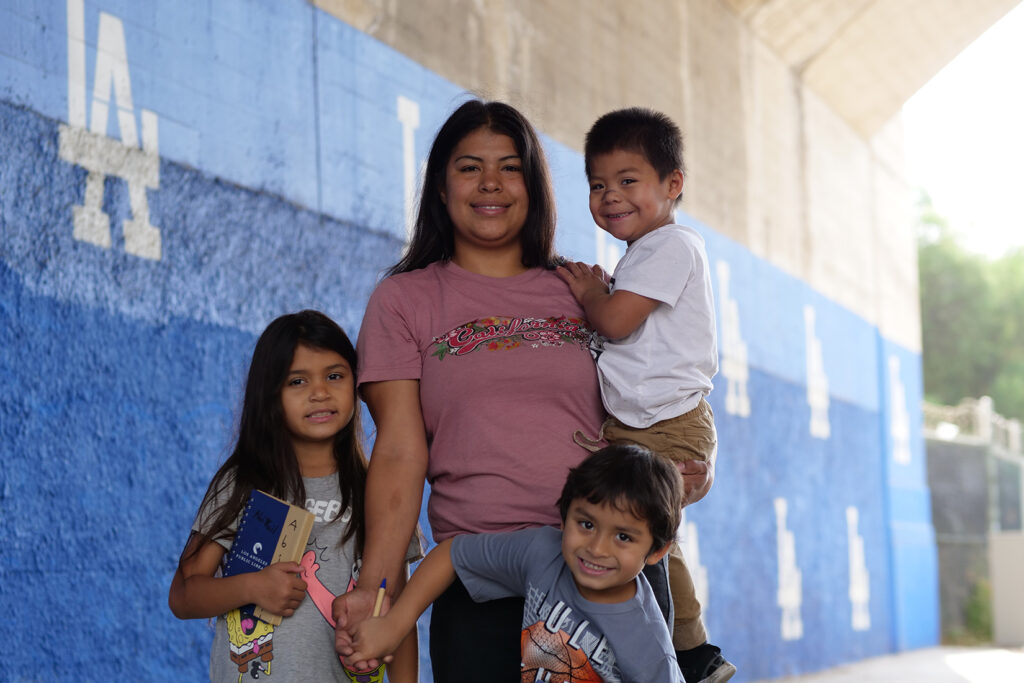
Although Sandra’s current living situation may seem less than ideal, it has played a critical role in getting her life back on track. It’s also a far cry from what life was like for her in early December 2021.
Sandra and her kids were living in a room that was part of a two-story duplex in South-Central Los Angeles for $700 per month when she started having issues with her landlord.
According to Sandra, the landlord often locked her out of the house on evenings when she was working late, forcing her to sleep in the car. She also said Sandra’s children were making too much noise.
Tensions inside the home continued to escalate. One evening, the landlord’s daughter called 911 and accused Sandra of trespassing. Sandra called the police to explain her side of things. “I told them I was living here since March.” Several police officers came over and helped Sandra gain access to her residence.
The next day, the landlord’s daughter entered Sandra’s bedroom, began yelling at her in front of her kids and told them to pack their belongings and leave.
“I [told] my kids to go to the back of the room,” Sandra recalled.
A physical altercation then ensued.
Sandra said the landlord’s daughter grabbed her hair. She fell to the ground and felt something hard hit her chin and then a sharp pain in the back of her head. As Sandra continued to get pummeled, she said she extended her arm to grab whatever she could find to protect herself.
When police arrived, the landlord’s daughter accused Sandra of allegedly hitting her with a knife. The landlord’s daughter was sent to the hospital where she received two stitches.
Meanwhile, police handcuffed Sandra, placed her in the back of the patrol car and drove her to the station where she was booked and taken into custody.
Prosecutors filed severe charges against Sandra, including two counts of assault with a deadly weapon, mayhem and grave bodily injury. The judge set Sandra’s bail at $150,000–an amount that’s seven times her annual income ($21,000 per year).
California notoriously sets high bail amounts compared to the rest of the country. According to the Public Police Institute of California, a nonprofit think tank, the median bail amount in California is $50,000, which is more than five times the median amount in the rest of the nation.
Unable to afford bail, Sandra had no choice but to languish behind bars at the Los Angeles County women’s jail in Lynwood. She struggled with the deplorable living conditions. “I found dried up boogers on my bunk bed and dried up blood on the walls,” Sandra said.
“I had to ask for cleaning equipment to clean it out and I scrubbed the walls and my bunk bed just to be able to lay in it. I prayed that I wouldn’t get covid-19 and die there.”
As the days turned into weeks, and weeks turned into months, Sandra worried about her kids, ages 3, 5, and 7.
They were staying with her sister, who was finding it increasingly more difficult to care for Sandra’s children and her own. She told Sandra that she would be unable to look after them for much longer and was considering putting them in foster care.
Sandra’s situation is not unusual. Each day, thousands of mothers who haven’t been convicted of a crime are being held in pretrial detention across the United States because they cannot afford to post bail. Many are the sole breadwinner for their families and losing their job could lead to long-lasting devastating consequences. Women of color are especially vulnerable. They’re more likely to have trouble affording bail than men because they face higher levels of poverty and greater pay discrepancy.
Research has also shown that when mothers are incarcerated, their children are more likely to be given up to the state. As a result, many mothers who cannot afford bail are often faced with pressure to plead guilty or take a lesser charge in order to be reunited with their children. While this often means they maintain custody over their children, being convicted of a criminal charge can hinder a person’s ability to get back on their feet in the long-term.
Outside jail, Sandra’s life was quickly unraveling. She lost her job, her car was repossessed and she had thousands of dollars in credit card debt. But looming over her mind the most that she was on the verge of losing custody over her children.
The stress was becoming unbearable. To cope, Sandra thought often about her kids. She missed everything about them. She tried remembering as many physical details as she could, starting from their facial expressions down to their little toes.
While California law permits courts to reduce bail following a change in circumstances, convincing a judge isn’t always easy. And according to Sandra, the judge said he believed she was a danger to society. He pointed to the severity of charges filed against her and three prior misdemeanor convictions she received over a decade ago.
“It broke my heart when the judge said that. I have been eight years sober and was contributing to society and my community,” she said.
Sandra’s public defender advocated strongly on her behalf. He told the judge that Sandra was a single mother and the sole provider for her kids and that her sister would be unable to keep them much longer. He also pointed to witness inconsistencies during the preliminary trial.
He asked that the judge give Sandra the benefit of the doubt and reduce the bail to an amount that would allow her to qualify for The Bail Project. The judge, according to Sandra, was hesitant, but agreed and reduced her bail to $50,000. This allowed the The Bail Project to step in and help.
After spending two months in jail, Sandra was finally released on February 16.
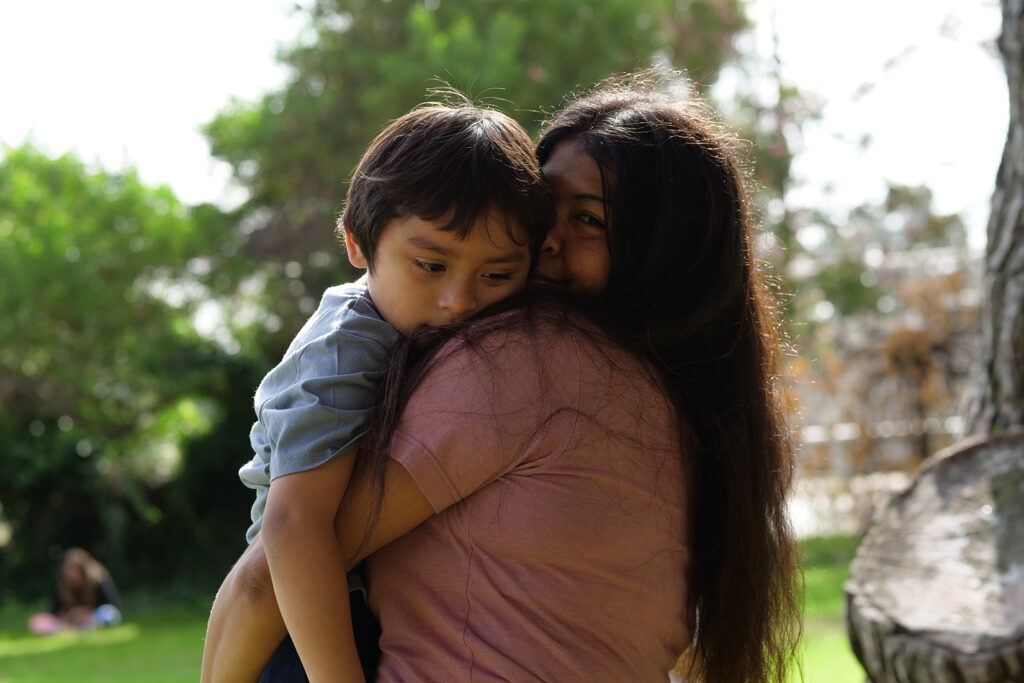
Sandra’s life quickly improved. Within a month, she found a job, moved into the Riverside shelter, bought a new car and was gathering evidence ahead of her trial.
She credits much of her success to the one-on-one help she received from friends, caseworkers and community based groups, such as The Bail Project and People Assisting The Homeless. Sandra said their support gave her the momentum she needed to turn her life around.
“If it wasn’t for The Bail Project, I don’t know what I would have done,” she said.
Finally, in late July, a jury reached a verdict in Sandra’s case. She was found not guilty on all charges and her case was dismissed, all because she held onto her innocence.
Had the judge refused to lower Sandra’s bail, she would have been forced to stay those entire eight months behind bars and would likely be in the midst of trying to regain custody of her kids. Instead, she plans to spend her time preparing her kids for back to school.
Sandra’s still not sure if she’ll find permanent housing anytime soon.
People who have been convicted of a crime often have limited options for housing. An individual’s criminal background may make them ineligible for public housing assistance and private landlords who run criminal background checks could reject applications.
Government officials have launched recent initiatives to tackle the issue. Hundreds of millions of dollars have been allocated to the cause via the state budget, California lawmakers have introduced bills and the Department of Housing and Urban Development announced earlier this year plans to reduce barriers to housing for the formerly incarcerated.
But Sandra isn’t confident those efforts will create long-lasting change. She said her experience has led her to believe that lawmakers should find new ways to help support formerly incarcerated mothers who are experiencing homelessness. She hopes to eventually become a caseworker so that she can help formerly incarcerated mothers who are unhoused transition back into society.
“There’s a stigma with people who have a record,” she said. “It feels like we can never redeem ourselves.”
In the meantime, Sandra is working with lawyers at Loyola Law School’s free legal clinic to see if they can get her three misdemeanors expunged. She’s also looking for new job opportunities with employment specialists located at the shelter, takes anger management classes once a week and plans to earn her GED soon.
As a second generation American whose parents emigrated from Honduras, Sandra said she wants to set an example for her children.
“I don’t want my children to feel limited in what they can accomplish because of where we were at,” she said.
“My kids are everything to me.”
Thank you for reading. The Bail Project is a 501(c)(3) nonprofit organization that is only able to provide direct services and sustain systems change work through donations from people like you. If you found value in this article, please consider supporting our work today.







